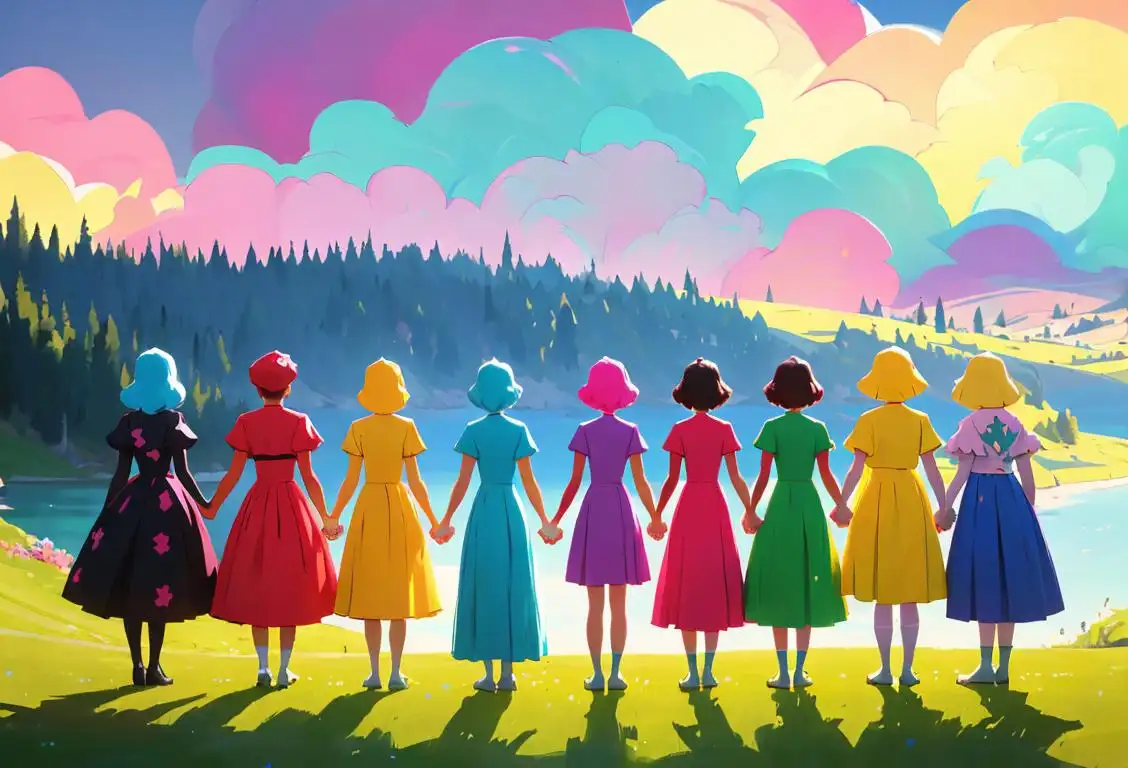National Mental Health Day

For those who see the phrase 'National Mental Health Day' and instantly think they have to remember and recite the entire DSM-5, don't worry. This day is about understanding, supporting, and promoting mental health awareness, rather than turning us all into armchair psychologists overnight. And who doesn't love a holiday that encourages compassion and empathy, right? Well, unless you're a misanthrope, but that's a different article altogether.
When is Mental Health Day?
It's national mental health day on the 10th October.
A Brief Overview
National Mental Health Day came into our lives slyly like a cat wearing socks, with 5359 mentions popping up online like mental health supportive confetti. Now, let's dial back a tad to one significant date, 10th October 2019, when the online world experienced a hashtag frenzy. This tidal wave of online love and awareness skyrocketed the day into an internet sensation.
The Meaning & How To Participate
The whole idea behind National Mental Health Day is to promote understanding, patience, and empathy towards people living with mental health issues. Coffee catch-ups, charity runs, or even an encouraging text to someone in need are just a few ways to participate. Whether you're a social butterfly or a digital hermit, you can make a significant impact because you can participate online or offline.
Everyone Can Do Something
It's worth noting that National Mental Health Day isn't about overwhelming yourself with the responsibility to save everyone around you. It's about promoting self-care and sometimes admitting that it's okay not to be okay. Even superheroes have bad days, right? The day is also about supporting mental health organizations that provide resources and support for those who may be in need.
A Little Bit of History
Now, many of us might think that National Mental Health Day is recent phenomena, but the first seeds were actually planted long ago. The credit goes to World Mental Health Day, an initiative launched by WHO in 1992 to tackle global mental health. The grassroots version grew over the years, driven by social media and the common need to promote mental health and support each other in a turbulent world.
History behind the term 'Mental Health'
18th Century
Emergence of Moral Treatment
During the 18th century, a new approach to mental illness known as moral treatment emerged. It emphasized a humane and compassionate approach to mental health, focusing on moral and spiritual development. This marked a shift away from the prevailing belief that those with mental illnesses were possessed by evil spirits or morally corrupt. Advocates of moral treatment believed in the possibility of recovery and the importance of providing a supportive environment for individuals with mental health issues.
19th Century
Recognition of Mental Health as a Medical Specialty
In the 19th century, mental health started to be recognized as a distinct medical specialty. This recognition led to the establishment of mental hospitals and asylums, dedicated to the care and treatment of individuals with mental illnesses. These institutions provided a more structured and controlled environment, but often lacked the understanding and compassion of the earlier moral treatment approach. However, advancements in psychiatry and the growing recognition of mental health as a legitimate area of medical concern laid the foundation for further progress.
20th Century
Evolution of Psychoanalysis and Modern Psychiatry
The 20th century witnessed significant developments in the field of mental health. Sigmund Freud's psychoanalysis introduced new insights into the human mind and greatly influenced the understanding and treatment of mental illnesses. Freud's emphasis on the subconscious and the significance of early childhood experiences revolutionized the field. Additionally, advancements in psychopharmacology led to the development of medications to address various mental health disorders, further expanding the treatment options available to individuals in need.
World War II Era
Deinstitutionalization and Community Mental Health
The aftermath of World War II marked a significant turning point in mental health care. Deinstitutionalization efforts emerged as society recognized the need for more inclusive and community-based approaches to mental health. The focus shifted from long-term hospitalization to community mental health centers, outpatient care, and support networks. This change aimed to promote the integration of individuals with mental illnesses into society and reduce stigmatization.
21st Century
Advocacy for Mental Health Awareness and Destigmatization
In recent years, there has been a growing recognition of the importance of mental health awareness and destigmatization. Numerous organizations and campaigns have emerged to promote mental well-being, educate the public, and advocate for better access to mental health resources. This ongoing movement strives to challenge the misconceptions surrounding mental health and ensure that individuals receive the support and care they deserve. The 21st century has witnessed significant strides in addressing mental health needs, emphasizing the holistic well-being of individuals.
Did you know?
Did you know that the World Federation for Mental Health, supported by WHO, spearheaded the first World Mental Health Day way back in 1992? Talk about being ahead of the curve!Tagged
fun self-care compassion support understanding empathy mental-health-awarenessFirst identified
9th October 2015Most mentioned on
10th October 2019Total mentions
5359Other days
Mental Health Day
Donate Your Hair Day
Suicide Prevention Day
Lash Day
Give Something Away Day
No Smoking Day
Kindness Day
Depression Screening Day
Hire A Veteran Day
I Forgot Day








